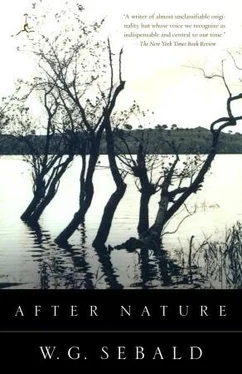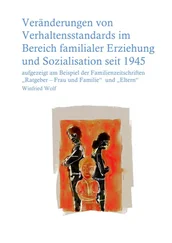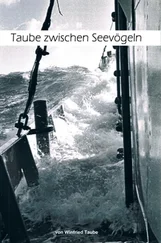Come, my daughter, come on,
give me your hand, we’re leaving
the town, I’ll show you the mill
set twice each day in motion
by the sea’s current,
a groaning miraculous construct
of wheels and belts
that carries water power
right into stone, right
into the trickling dust and
into the bodies of spiders.
The miller is friendly,
has clean white paws,
tells us all kinds of lore
to do with the story of flour.
A century ago Edward FitzGerald,
the translator of Omar Khayyám,
vanished out there. At an advanced age
one day he boarded his boat,
sailed off, with his top hat
tied on, into the German ocean
and was never seen again.
A great enigma, my child,
look, here are eleven barrows
for the dead and in the sixth
the impress of a ship with forty oars
long since gone, the grave of
Raedwald of Sutton Hoo.
Merovingian coins, Swedish
armour, Byzantine silver
the king took on his voyage,
and his warriors even now
on this sandy strip keep their weapons
hidden in grassy bunkers
behind earthworks, barbed wire
and pine plantations, one great
arsenal as far as your eye can see,
and nothing else but this sky,
the gorse scrub and now and then,
an old people’s home,
a prison or an asylum,
an institution for juvenile delinquents.
In orange jackets you see
the inmates labour
lined up across the moor.
Behind that the end
of the world, the five
cold houses of Shingle Street.
Inconsolable a woman
stands at the window,
a children’s swing
rusts in the wind, a lonely
spy sits in his Dormobile
in the dunes, his headphones
pulled over his ears.
No, here we can write
no postcards, can’t even
get out of the car. Tell me, child,
is your heart as heavy as
mine is, year after year
a pebble bank raised
by the waves of the sea
all the way to the North,
every stone a dead soul
and this sky so grey?
So unremittingly grey
and so low as no sky
I have seen before.
Along the horizon
freighters cross over
into another age
measured by the ticking
of Geigers in the power station
at Sizewell, where slowly
the core of the metal
is destroyed. Whispering
madness on the heathland
of Suffolk. Is this
the promis’d end? Oh,
you are men of stones.
What’s dead is gone
forever. What did’st
thou say? What,
how, where, when?
Is this love
nothing now
or all?
Water? Fire? Good?
Evil? Life? Death?
Lord, I dreamed
that to see Alexander’s battle
I flew all the way to
Munich. It was when darkness
crept in and far below me
I saw the roof of my house,
saw the shadows falling
on the East Anglian landscape,
I saw the rim of the island,
the waves lapping the shore
and in the North Sea the ships
motionless ahead of the foam-white wakes.
As a stingray hovers deep down
in the sea, so soundlessly I glided,
scarcely moving a wing,
high above the earth
over the Rhine’s alluvial plain
and followed upstream
the course of the water
grown heavy and bitter.
Cities phosphorescent
on the riverbank, industry’s
glowing piles waiting
beneath the smoke trails
like ocean giants for the siren’s
blare, the twitching lights
of rail- and motorways, the murmur
of the millionfold proliferating molluscs,
wood lice and leeches, the cold putrefaction,
the groans in the rocky ribs,
the mercury shine, the clouds that
chased through the towers of Frankfurt,
time stretched out and time speeded up,
all this raced through my mind
and was already so near the end
that every breath of air made my
face shudder. A high surf,
the mountain oaks roared on the slopes
of the Odenwald and then came a desert
and waste through whose valleys
the wind drove the dust
of stones. A twice-honed
sword divided the sky
from the earth, an effulgence flowed
into space, and the destination
of my excursion, the vision
of Altdorfer, opened up.
Far more than one hundred thousand,
so the inscriptions proclaim,
number the dead over whom
the battle surges for the salvation
of the Occident in the rays
of a setting sun. This is
the moment when destiny turns.
At the centre of the grandiose thronging
of banners and flags, lances and
pikes and batons, the breastplated
bodies of human beings and animals,
Alexander, the western world’s
hero, on his white horse
and before him in flight
towards the sickle moon
Darius, stark terror
visible in his face. As fortunate,
did the clever chaplain, who
had hung up an oleograph
of the battle scene beside
the blackboard describe the outcome
of this affair. It was,
he said, a demonstration
of the necessary destruction of all
the hordes coming up from the East,
and thus a contribution to the history
of salvation. Since then I have
read in another teacher’s writings
that we have death in front of us
rather like a picture of Alexander’s battle
on our schoolroom wall.
Now I know, as with a crane’s eye
one surveys his far-flung realm,
a truly Asiatic spectacle,
and slowly learns, from the tininess
of the figures and the incomprehensible
beauty of nature that vaults over them
to see that side of life that
one could not see before.We look
over the battle and, glancing
from north to south, we see
a camp with white Persian
tents lying in the evening glow
and a city on the shore.
Outside, with swollen sails
the ships make headway and
the shadows already graze
the cypresses, and beyond them
Egypt’s mainland extends.
The Nile Delta can be made out,
the Sinai Peninsula, the Red Sea
and, still farther in the distance,
towering up in dwindling light,
the mountain ranges,
snow-covered and ice-bound,
of the strange, unexplored,
African continent.
This translation of After Nature is published posthumously. W. G. Sebald approved a final version of the text before his death.
W. G. Sebald was born in Wertach im Allgau, Germany, in 1944. He studied German language and literature at Freiburg, Switzerland, and Manchester. He taught at the University of East Anglia in Norwich, England, for thirty years, becoming professor of European literature in 1987, and from 1989 to
1994 was the first director of the British Centre for Literary Translation. His books have won a number of international awards, including the National Book Critics Circle Award, the Los Angeles Times Book Award, the Berlin Literature Prize, and the Literatur Nord Prize. He died in December 2001.
Michael Hamburger has written, translated, and edited across the fields of German, French, and Italian literature. He has held visiting posts at universities and colleges in America and Great Britain and has received many awards and honors, including two honorary doctorates, several prizes for his translations and, in 1992, an OBE. He has produced poetry throughout his writing life; his Collected Poems 1941–1994 appeared in 1995 and his latest volume, Intersections, in 2000. His critical work on the subject, The Truth of Poetry, was published in 1972 by Penguin. He has also written his memoirs, String of Beginnings (1991).
Читать дальше












